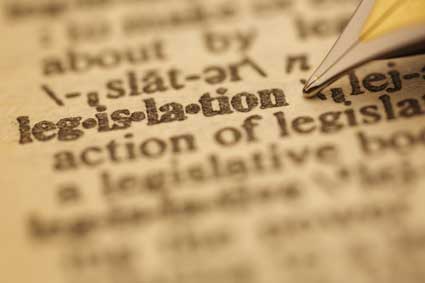Course Description
In this course, we will examine some of the most influential conspiracy theories in history, dealing with some of the world's most historic events, such as the NASA Moon Landing, the assassination of John K. Kennedy, the horrific Tuskegee Experiments, top secret government programs, and even the conspiracy behind the Loch Ness Monster.
By its very definition, conspiracy means to form an "agreement" among people. In this case, it is an agreement, usually, to deceive. There are two views of history: an accidental view and a conspiratorial view. In the first view, people do not conspire to affect history. In this view, catastrophes and other monumental events happen as a result of natural forces. In the conspiratorial view, a small group of people exert their power to directly affect an outcome that will increase their power or benefit themselves in other ways.
- Completely Online
- Self-Paced
- Printable Lessons
- Full HD Video

- 6 Months to Complete
- 24/7 Availability
- Start Anytime
- PC & Mac Compatible
- Android & iOS Friendly
- Accredited CEUs

Learning Outcomes
- Define what philosophy is.
- Describe the philosophical lexicon.
- Summarize metaphysics.
- Summarize epistemology.
- Describe philosophy of mind.
- Describe philosophy of religion.
- Summarize ethics in relation to philosophy.
- Describe logic and how it is used in philosophy.
- Summarize social and political philosophy.
- Identify unsolved problems and paradoxes in philosophy.
- Summarize the works of the great philosophers.
- Demonstrate mastery of lesson content at levels of 70% or higher.
Assessment Guide
| Assessment | Points |
|---|---|
| Lesson 1 Assignment | 25 points |
| An Introduction | 5 points |
| Lesson 1: What Is Philosophy? | 9 points |
| Lesson 2 Assignment | 25 points |
| Lesson 2: Coming to Terms: A Philosophical Lexicon, Part I | 9 points |
| Lesson 3 Assignment | 25 points |
| Lesson 3: A Manner of Speaking: A Philosophical Lexicon, Part II | 9 points |
| Lesson 4 Assignment | 25 points |
| Lesson 4: Metaphysics | 9 points |
| Lesson 5 Assignment | 25 points |
| Lesson 5: Epistemology | 7 points |
| Lesson 6 Assignment | 25 points |
| Lesson 6: Philosophy of Mind | 9 points |
| Lesson 7 Assignment | 25 points |
| Lesson 7: Philosophy of Religion | 9 points |
| Lesson 8 Assignment | 25 points |
| Lesson 8: Ethics, Part I | 6 points |
| Lesson 9 Assignment | 25 points |
| Lesson 9: Ethics, Part II | 10 points |
| Lesson 10 Assignment | 25 points |
| Lesson 10: Logic | 10 points |
| Lesson 11 Assignment | 25 points |
| Lesson 11: Social & Political Philosophy | 9 points |
| Lesson 12 Assignment | 25 points |
| Lesson 12: Unsolved Problems & Paradoxes in Philosophy | 9 points |
| Lesson 13 Assignment | 25 points |
| Lesson 13: An Overview of the Great Philosophers | 9 points |
| The Final Exam | 51 points |















